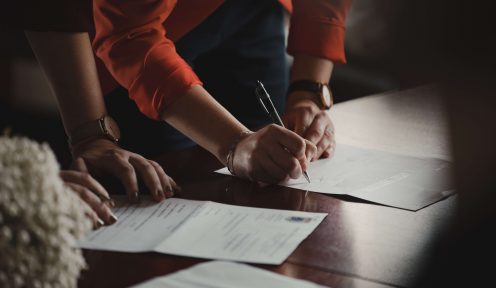
28.01.2021
Police arrest: What shouldn´t we be unaware of?
 Por
Ortega Lopez-Bago , Francisco Javier
Por
Ortega Lopez-Bago , Francisco Javier The police arrest, the statement before the police or the judge, or the imprisonment. In addition to being sordid, these are, of course, issues that are alien to the M&A world. But in a police arrest: What should we not be unaware of?
However, no regular operator of M&A transaction can avoid remembering (almost indelibly) the reproaches contained in the Prison Order of the Judge of the “Blesa Case”. In relation to the “acquisition” of the Bank in Miami:
“He has not explained under what strategy assumptions the capture of deposits from a “new” market niche for Caja Madrid was studied. Unlike other financial institutions that have entered the U.S. market”. (…) “In other words, to put it very graphically, in the middle of a storm. There is no ship that has to withstand even in the presence of a tsunami. There is always a deckchair, good or bad, to spend the afternoon sunbathing”.
But, these two ( literally) sentences can distress any Investment Director, but no, let’s not fool ourselves. This is not the norm. It exists, but it is not the norm. But… what if it did exist?
What rights does the detainee have? Can a detainee talk to his lawyer (before, during or after) the statement before the Police? And before the Judge? What is Habeas Corpus? Is it advisable for the detainee to testify before the Police? Can the Police take the detainee’s statement without the presence of his lawyer? Can the Police prevent the lawyer from meeting with the detainee prior to the police statement?
Contacto No te quedes con la duda, contacta con nosotros. Estaremos encantados de atenderte y ofrecerte soluciones.Police Detention: Rights of the Detainee
First, HABEAS CORPUS. The institution of Habeas Corpus is articulated as a specific procedural guarantee of the fundamental right to personal liberty. It is a procedure processed with the maximum urgency and is only intended to determine whether the detention is lawful or not. It can be requested orally by the detainee himself, or his spouse, or ascendants or descendants or his lawyer. The one who urges the procedure appears or submits a written document and state the circumstances under which he understands the detention as unlawful. The police officer before whom the person appears has the obligation to immediately transfer the issue to the judge. The Judge has the obligation to make a strict and immediate control of legality of the circumstances of the detention. And also, to solve it immediately.
Second, the LAWYER-DETAINED RELATIONSHIP: The lawyer may communicate with the detainee, before and during the police statement and, in general, in any proceedings in which he participates. The lawyer is empowered to obtain information from the police on:
- the reasons for the arrest
- the crime of which the detaine is accused
- to have a copy of the statement
- to make observations.
And finally, he has the right to a confidential interview, after the end of the statement. And that should take place in conditions that guarantee this reserve.
Third and last: MUST WE DECLARE TO THE POLICE: Unless the reason for the arrest is an alleged flagrante delicto. Normally, the arrest warrant is ordered by the judge in the context of an investigation. For this reason it is reasonable to recommend not to declare before the Police and to wait to declare (if applicable) before the Judge. And in any case, after the reserved interview with the lawyer of the detainee.
If this article has been of interest, we also suggest you to read the following article published on our website: How does Habeas Corpus work? Practical questions about Illegal Detention and Habeas Corpus.












